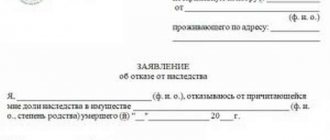Law on communal apartments
There is no precise definition of the term “communal apartment” in the legislative and regulatory acts of our country. Most often, this terminology is raised at the regional level in the relevant regulations of regional government structures.
In general, a communal apartment is usually understood as a type of residential property that consists of several separate premises for residential purposes. Each room in such an apartment has a separate owner and tenant. In addition to residential premises, there are also certain public areas that all residents have the right to use. We are talking about corridors, kitchens, bathrooms and bathrooms, etc.
Rights and obligations of residents of a communal apartment
When it comes to living together, certain rules arise.
⇒ The rights and obligations of residents of communal apartments are regulated in accordance with the requirements and provisions of Article 30 of the Housing Code of the Russian Federation.
This law is in force in Moscow and St. Petersburg and in other cities of our country.
In particular, premises owners have the right to:
- accommodation in their own room. The owner can live in his premises without any problems;
- free and unhindered use of public places;
- leasing of real estate;
- owners are also guaranteed free disposal of their property.
If a tenant lives on the basis of a social tenancy agreement, then his rights are limited. In this situation, the owner of the premises will be the municipality, and any decision regarding a specific room will first have to find support from authorized officials.
As for responsibilities , everything is quite simple here. Residents of the hostel must:
- Maintain cleanliness in your premises and common areas.
- Take part in the life of the team, in particular, resolve issues regarding the duty schedule and repairs of premises.
- Pay utility bills on time. It is not necessary that the premises will be used. The owner may not be there, but he will be required to pay for utilities on a timely basis.
- Monitor the proper condition of the communal apartment.
- Adhere to the rules of public order and moral standards of behavior.
Rules for living in a communal apartment
The rules for living in a communal apartment are established in accordance with the provisions of the Housing Code of the Russian Federation. Of course, regarding communal apartments the law is mostly silent, but it does establish a number of mandatory rules.
If someone does not adhere to them, the violator may well be held accountable by a court decision.
Initially, administrative penalties will be applied against the offender, but if this is not enough, he may well be evicted.
What are communal apartments and when did they appear?
So, let's figure out what a communal apartment is? This is a large living space with two, three or more isolated living rooms, each of which houses a family. Moreover, the apartment has one entrance hall, a corridor, a shared kitchen and a bathroom. Previously, such apartments belonged to the state and were provided to people for temporary use. Now every family is the owner of a dwelling. A person who lives alone can also be considered a family.
This type of housing appeared at the beginning of the distant 18th century. True, it was a little different from modern communal apartments. Previously, owners of large apartments created partitions. This resulted in three to six rooms that were rented out. The kitchen was shared. In those days the toilet was on the landing. From three to six families could live in such apartments.
Then communal apartments became even more popular. After 1917 The Bolsheviks forcibly placed families with the owners of large apartments. The so-called compaction took place. Then the norm was accepted: 10 sq.m. for one adult and a child under two years old, 5 sq.m. for a child from two to twelve years old. Since 1924, as much as 16 square meters per person has become the norm, regardless of age. If someone had “unoccupied” “squares” in their apartment, they moved people there.
It should be noted that in those days they did not like wealthy people at all. From 1924 to 1936 owners of large apartments were deprived of the right to vote. Afterwards, they were generally evicted from the apartments that belonged to them. During the NEP period, private property was partially restored. Owners could decide for themselves who to rent out their spare rooms to.
In 1950-60 The Soviet government set a course for the massive construction of separate housing. At the same time, communal apartments remained a necessary measure to save money. At that time, house-building factories and reinforced concrete factories were actively being built, thanks to which 110 million square meters of housing appeared every year.
In the 1990s, the return of the market economy began, people began to privatize their housing so that it would be their private property. Mass resettlement of communal apartments began.
Common areas in a communal apartment
Communal apartments must have certain common areas. By default, all residents can freely use the corridor, kitchen, bathroom, hallway and bathroom. At the same time, they may well occupy a certain space with furniture corresponding to their share.
Regarding the place of general purpose, namely the order of use, the law is silent. Therefore, all conflicts arising on this basis are automatically referred to the court.
You need to understand that in addition to the right to use the common space, residents will also be forced to maintain order in every possible way and, if necessary, carry out repairs.
Cleaning of common areas
All residents living in a communal apartment are required to maintain order in common areas and regularly clean them. This procedure is regulated by the norms of the Housing Code of the Russian Federation and the Civil Code of the Russian Federation, which indicate that each tenant is assigned a cleaning responsibility.
Thus, the Housing Code establishes that each tenant bears a certain financial burden for maintaining the property of the apartment, and his responsibility will be directly proportional to his share in the common property.
Cleaning of the premises, or rather the schedule and rotation, should be determined by the residents themselves at a general meeting. The only caveat is that when determining the cleaning schedule, the number of residents in each room must be taken into account. A certain order of duty will need to be established jointly.
Renovation of common areas
The largest number of conflict situations arise regarding the repair of common areas. As a rule, most citizens believe that the contribution to repairs directly depends on the share of each of the residents.
However, in practice this is absolutely not the case. The law states that everyone uses public spaces on equal terms, so their contribution to repairs will be the same.
Please note that repairs in a communal apartment can begin either by decision of all residents or by the initiative of the management company. In the latter case, an inspection report and a preliminary cost estimate will be required.
Repairs in a communal apartment without the consent of neighbors
Each owner has the right to carry out repairs in the premises he owns at his own discretion. The exception is situations when repairs are carried out in public places, or redevelopment of a communal apartment is planned.
If we are talking about redevelopment in premises that will belong to the owner, written consent will be required from all residents. If at least one of them fails, it will be impossible to carry out the planned repairs.
If the repairs are carried out without the consent of the neighbors, they have the right to go to court and seek the dismantling of the illegal structure that was installed without their knowledge.
Smoking in a communal apartment
Current rules regarding smoking restrictions stipulate that the ban on the use of tobacco products affects all public spaces. Thus, nominally in a communal apartment you can smoke exclusively in your rooms. Smoking is not allowed in public places.
The exception will be situations when all neighbors smoke, or they have allocated a separate room for smokers, equipped in accordance with fire safety standards.
However, the current regulations do not mention smoking in a communal apartment at all . However, if a smoker causes discomfort to his neighbors, they have the right to demand that he stop smoking, or they can turn to the local police officer for support. However, this is the most extreme option, and analysts still recommend trying to negotiate with smokers peacefully.
The difference between a hostel and a communal apartment
A communal apartment and a hostel are not the same thing. There are significant differences between these types of housing:
- In a communal apartment, one or several rooms can be assigned to one resident or one family. Only a bed or a room can be provided in the dormitory.
- Privatization of a dorm room is impossible, unlike a communal apartment.
- In communal apartments, kitchen utensils, stove burners and storage rooms are shared between residents. In dormitories, one kitchen can be assigned to 10 or more rooms, so such division is not possible.
- Despite the fact that the kitchen and bathroom in the communal apartment are shared, everyone has their own electricity meters. Dormitories rarely install meters for individual rooms.
Pets in a communal apartment
Once upon a time there was a special rule according to which, in order to have a pet in a communal apartment, it was necessary to obtain written consent from all residents. However, after the Government of the Russian Federation Decree No. 25 of January 21, 2006 “On approval of the Rules for the Use of Residential Premises” came into force, this norm was canceled.
However, this does not mean that it is now possible to keep pets in communal apartments without problems. If the animal is large, and because of this there is discomfort for other residents, they have the right to insist on the eviction of the animal. It should also be taken into account that some citizens may have allergic reactions. They may well sue if a peaceful agreement cannot be reached.
For those citizens who are owners of pets, you need to remember some rules:
- Pet owners must take into account the interests and rights of their neighbors and ensure that they do not have problems because of their pet.
- Keeping sick animals in a communal apartment is strictly prohibited.
- Keeping an animal should in no way violate environmental, sanitary and hygienic standards.
Which apartment is considered communal?
And so, the first call and the first viewing. Then again and again, but for some reason no one is eager to buy your “wonderful two-room apartment with excellent repairs”... “What’s wrong?” – the Seller puzzles. Every owner knows perfectly well all the pros and cons of his home. They try not to talk about the disadvantages during shows, but they talk about the advantages in detail and colorfully! You need to understand that each apartment is a unique product! The Seller and the Buyer look at the same product completely differently.
Communal apartment: housing is illegal. A clear answer from a legal point of view to the question: “What is communal housing?” Even a person who is knowledgeable enough in this area cannot. Despite the fact that the term “communal apartment” may come out of the mouths of many lawyers, this does not mean that each of them understands something specific by this concept.
Guests in a communal apartment
The legislator in no way limits the right of residents of communal apartments to receive guests. You can invite people to visit you without restrictions and without the consent of your neighbors. We also note the fact that guests have every right to use common areas and any interference with them will be a violation.
However, with all this, a number of requirements are put forward for guests of communal apartments:
- guests cannot live in a communal apartment permanently. The exception is when they are renting a room;
- guests are obliged to follow ethical and moral standards, and must in no way violate public order;
- It is strictly prohibited to make noise and litter in public areas.
Payment of utilities in the apartment
Payment for utilities is made depending on the share of each owner in the common property. Most often, there are two main methods of payment:
- Each living room has individual metering devices. Payment in this case will occur depending on the performance of the device. As for utilities for the use of the common area, payments will be made by agreement between residents, or depending on their shares.
- There are no metering devices. In this situation, payment for utilities will be made depending on the number of residents, or taking into account the space occupied by each of the residents.
In general, the following rules will apply regarding payment of utility services:
- heating fees are divided among all residents in proportion to their shares;
- to calculate payments for water and gas, the number of people living in a communal apartment is taken into account;
- fees for the maintenance and repair of the house are paid based on the calculation of shares in common areas and the actual occupied area.
Communal payments
Residents pay for services according to the size of their share in the common real estate.
Two payment options:
- When there are no individual devices showing resource consumption, payment is made according to a special agreement, taking into account the amount of space occupied or the number of registered persons.
- When individual metering devices are installed, then each party makes payment according to their readings, and the use of the common territory is paid for by agreement.
It happens that residents cannot find a compromise, in this situation the rules are as follows:
- Heating services are paid according to the available shares in the apartment;
- Payment for water supply and gas is distributed among persons living in the apartment, based on their number, as well as guests staying in the premises for more than 30 days;
- Payment for electricity occurs by calculating the power and number of devices located in each room;
- As for maintenance and repair work, this item is paid taking into account the size of the actual premises and the size of the share per each owner.
If a neighbor does not pay for utilities, by law the other residents of the apartment are not required to pay his debts.
How to sell a room in a communal apartment, do you need to notify neighbors?
When selling rooms in a communal apartment, you need to remember the provisions and recommendations of Article 250 of the Civil Code of the Russian Federation. It states here that neighbors in the communal apartment will have a pre-emptive right to purchase.
Thus, if the owner decides to sell his share in a communal apartment, he is obliged to notify his neighbors about this, who can exercise their pre-emptive rights at any time. Moreover, this must be done in writing.
If neighbors do not want to buy out the share, they must write a written refusal. In the case where there is no written refusal, it is better to send written notices of sale to their names. This way, if problems arise, the owner will be able to prove that all neighbors were notified about the sale of the room.
Rights to a vacant room
If one of the rooms is vacated, it can be transferred by inheritance or as a gift to the owner's heirs . If we are talking about a room owned by the municipality, then the vacated premises can be transferred on the basis of a social tenancy agreement to certain categories of citizens:
- users who are registered to receive their own housing. They are the ones who are given rooms in communal apartments;
- low-income citizens and other privileged categories of the population;
- users whose relocation is taking place within the framework of the program for the resettlement of dilapidated buildings;
- citizens who expressed a desire to buy a room from the municipality.
If the rights of those living in a communal apartment and the rules of residence are violated, where to complain, how to write a complaint
Often life in a communal apartment is accompanied by conflict situations. As statistics show, in the vast majority of situations, neighbors in a communal apartment cannot find a common language, and law enforcement officers often have to intervene.
If the question arises where to complain, then you need to indicate that conflicts in communal apartments are resolved with the participation of the police or the courts. If a neighbor violates your rights, no one can stop you from fighting him and writing a complaint. It will need to indicate the circumstances of the conflict that occurred, carefully describe your actions and the neighbors’ reaction to the claims, and also provide evidence. This includes various photographs and video materials, witness statements, etc.
If a neighbor occupies a common area
If a neighbor has unauthorizedly seized part of the common premises, it is necessary to file a lawsuit. Since common areas are divided between the owners according to shares, and their use is carried out on equal terms, the neighbor will be held accountable. In particular, he will be forced to vacate the territory that he occupied in circumvention of the current rules, dismantle all structures that violate the rights of other residents, etc.
Living in communal housing
In addition, according to the Housing Code of the Russian Federation, those on the waiting list should be accommodated in ordinary apartments, not communal apartments.
“On Privatization” indicates that rooms in communal apartments can be privatized by persons registered in them. Communal housing is a specific system that has its own regulatory mechanisms and relationships between the parties. The maintenance of personal space, that is, rooms, relates to the desires and capabilities of citizens, the main thing is that their condition does not cause harm or disturbance to other neighbors.
But the maintenance of common areas is a joint responsibility. Each apartment resident must ensure order in the premises, do not litter and follow safety precautions.
The first can: sell, donate or change their room; register another person in it temporarily or permanently;







